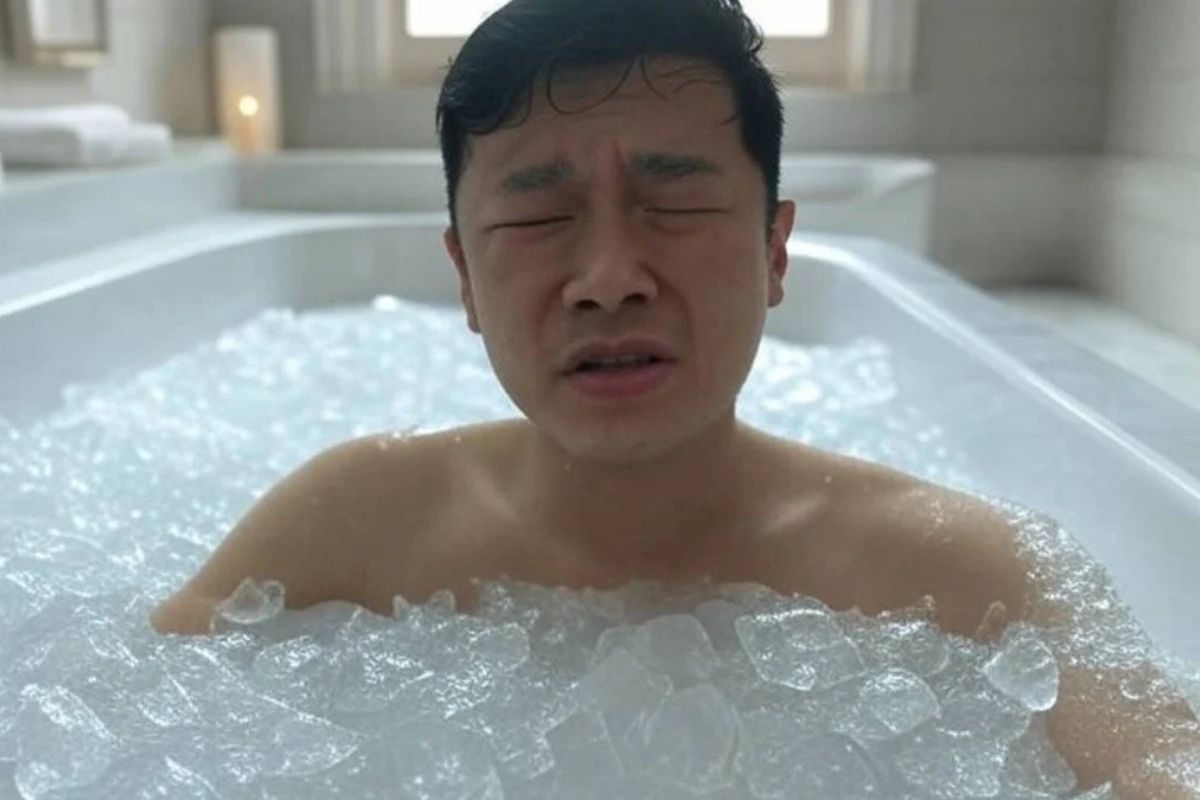Show table of content Hide table of content
In recent years, a new trend has emerged among productivity and well-being gurus: cold showers, or even baths in the middle of ice. You’ll have seen videos of athletes like LeBron James immersing themselves in an icy bath. Even Gwyneth Paltrow has tried it.
Are ice baths and cold showers really good for your health?
Presented as an ideal solution for reducing stress, reducing inflammation and boosting the immune system, these methods can seem like a panacea for improving health and increasing daily efficiency. And there are plenty of influencers touting their effects.
However, science has begun to debunk these claims, revealing that the supposed benefits of ice baths are not as solid as they seem… To this end, researchers from the University of South Australia recently conducted a meta-analysis of 11 international studies. They published their findings in the scientific journal PLOS One.
The analysis used data from cold baths and showers at temperatures ranging from 7 to 15ºC, over durations ranging from 30 seconds to two hours. The aim was to assess the real effects of cold water immersion, which has become increasingly popular.
Elite athletes often use these practices to recover after competitions, and they have been widely publicised as beneficial for the general public. However, researchers have discovered that the evidence supporting these benefits is mainly applicable to athletes, and not to the general population.
In terms of stress reduction, the results indicate that immersion in ice-cold water can indeed reduce stress levels, but only temporarily, for around 12 hours after exposure. This means that there is no immediate and lasting effect on psychological well-being.
What’s more, although some people report an improvement in quality of life after taking cold showers lasting between 20 and 90 seconds, these effects generally fade after three months, indicating a lack of prolonged benefits.
Science This strange red lake in Tanzania turns animals to ‘stone’.
The limits and risks of ice baths
The Australian team’s research also explored the impact of ice baths on sleep quality and the immune system. Although some of the data suggests an improvement in sleep, these conclusions are based on limited samples and are exclusively male. More research is therefore needed before they can be generalised to the population as a whole.
As far as the impact of cold showers on the immune system is concerned, it was found that people who took them had 29% fewer absences from work due to illness. However, there is no solid evidence to show that these showers actually improve the immune response in any significant way.
What’s more, contrary to popular belief, ice baths do not reduce muscular inflammation. On the contrary, they appear to cause a significant increase in inflammation, both immediately and one hour after exposure. This is the result of an ‘acute inflammatory response’ by the body to heat stress, which can be beneficial for athletes by helping to strengthen muscles, but potentially harmful for those with pre-existing pathologies.
In the end, although cold showers may offer some temporary benefits, particularly for athletes, they do not offer any lasting or widespread benefits for the general population. Unless you’re a top sportsperson, taking a cold shower won’t improve your productivity. At most, it will have saved you a little time.
What about getting up early?
The same goes for the idea that getting up at five in the morning improves productivity. Here too, science has shown that the benefits of this practice depend on many factors, including genetics. Individual biological clocks influence our ability to get up early.
Although getting up early can offer personal time for activities such as exercise and a healthy breakfast, it also means going to bed earlier, which can affect social life and reduce exposure to daylight, essential for vitamin D synthesis.
One study suggests that getting enough sleep, regular exercise and eating a nutritious breakfast are crucial to waking up early in the morning. However, daily obligations and individual lifestyles mean that this lifestyle is not suitable for everyone, and forcing such a change can have negative consequences for health and productivity.


